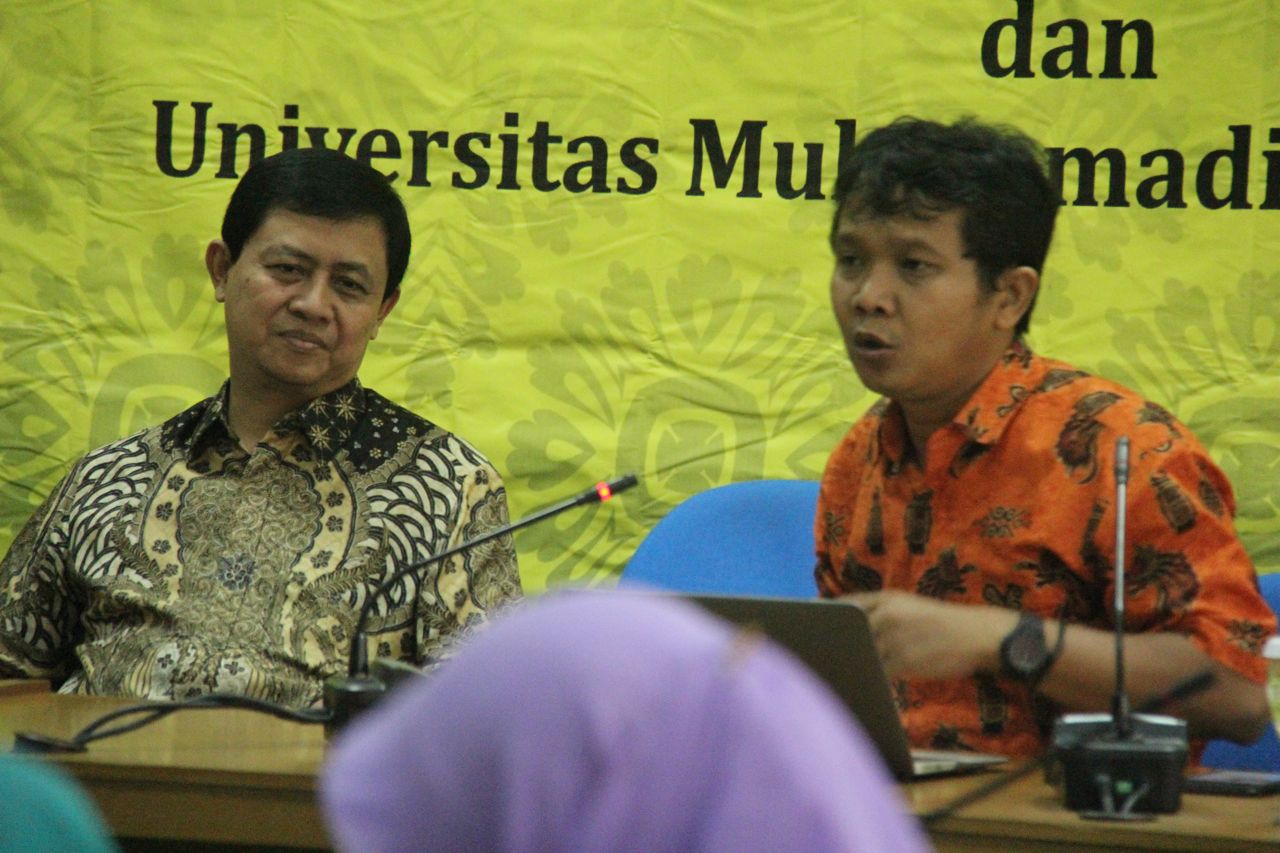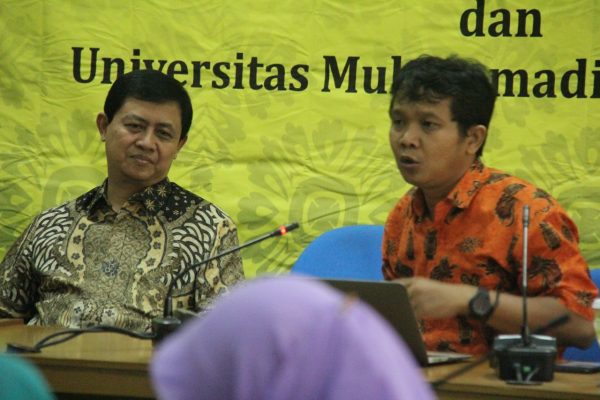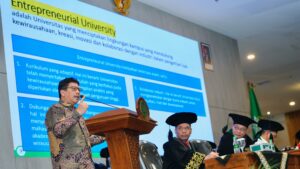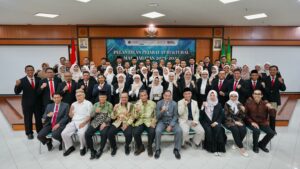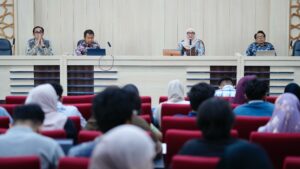Village funds are provided by government for the village development and was regulated on Law No.6/2014. However, village funds in 2015 ran into controversy. One of them was that the funds were hard to withdraw the village funds.
In a Focus Group Discussion (FGD) organized by PP Aisyiyah and Universitas Muhammadiyah Yogyakarta (UMY) at International Relations hall of UMY on Saturday (28/5), a sociologist of University of Gadjah Mada as well as Task Force of Village Funds of Kemendes, Arie Djito mentioned that the controversy was also dealing with unpreparedness regulation, government regulation, regent regulation, governance, technical system, and management.
The difficulty of withdrawals is the impact of transition limitation, unwell preparation, and postponed regulation establishment. “The government regulation has been reviewed twice and it will be reviewed again. Besides, the information distribution of the village funds from ministry level to regency and village is limited. The authority distribution of Kemendes and Kemendagri effect on the lowest level which will lead to institutional tension,” Arie argued.
The difficult withdrawals were also due to the factor of regional budgets (APBD). He informed that the village funds are transferred to regional bank account and it is frequently hung up on the APBD. “There are many responsive regencies sending to the regional area, but there are also many late regencies,” Arie told.
Arie asserted that village authority is distorted by regency, Kemenkeu, Kemendes, and Kemendagri. In fact, a lot of issues portrayed the difficulties encountered by villages such as management and responsibility reference. “Not all regencies have Perbub of Village Fund Management. The responsibility scheme also has a lot of versions like only village fund reports which were supposed to be all the village budgets,” Aried said.
To cope with the issues, there is village monitoring. As mentioned on the law, the monitoring aims at assisting villages to perform duties and functions of running village and managing village budgets so that the villages can undertake programs as the law.
“Indeed, there are a number of discrepancies. Society is still categorized into developed, developing, and left society. Thus, the villages need compatible perceptions, approaches, and methods. The monitoring during 2015 and in the beginning of 2016 should be evaluated since there are interests of two parties,” Arie ended.
